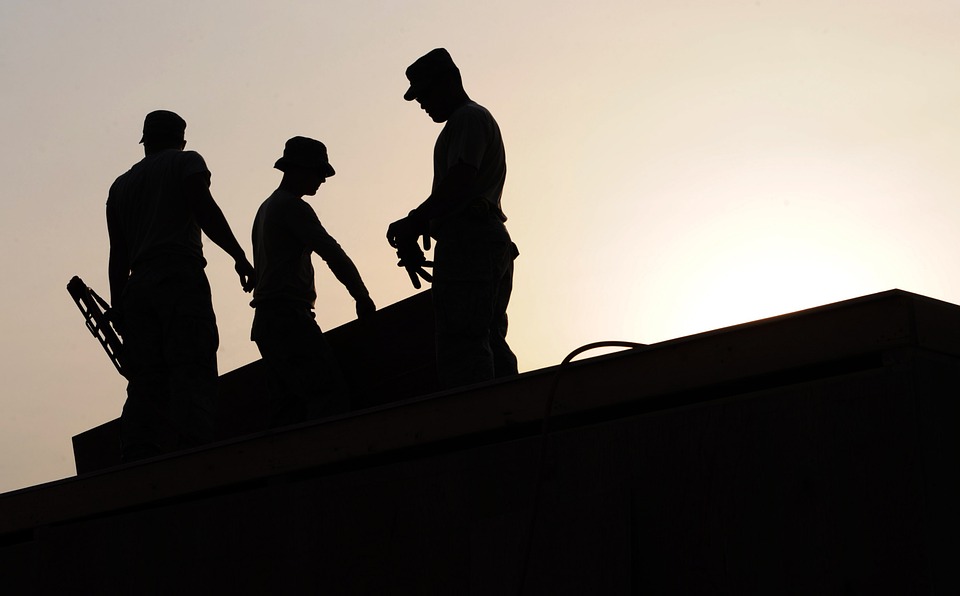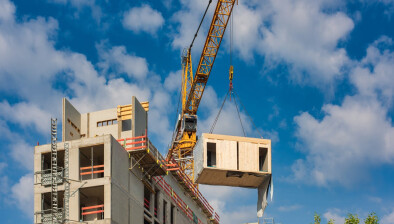One in four construction workers ‘has considered suicide’
A report from the Chartered Institute of Building (CIOB) has found that 26% of construction industry professionals thought about taking their own lives in 2019 – before the COVID-19 pandemic had hit the industry – and 97% recorded being stressed at least once in the last year.

Job insecurity, long hours, time away from families, lack of support from HR and late payments all contributed to the ‘silent crisis’, said CIOB President, Professor Charles Egbu.
The CIOB report, Understanding Mental Health in the Built Environment, also highlights the role gender differences play in mental health the industry. Female construction workers often have to work with poor or no toilet facilities and inadequate sanitary conditions, while men frequently feel unable to discuss their mental well-being due to ‘hyper-masculine’ expectations of how they should behave.
Published to mark Mental Health Awareness Week (18-24 May), the report finds that 56% of construction professionals work for organisations with no policies on mental health in the workplace. The CIOB produced this report to highlight the state of mental health in the industry and has uncovered the silent crisis that affects many construction workers day-to-day lives.
It is almost guaranteed that COVID-19 will have made things worse in the industry. Professor Charles Egbu – who has made mental health and wellbeing in construction one of the keynotes of his presidency of the Institute – said: “We know that the coronavirus outbreak is affecting the way many of us live, work, and play, and in recent days it has become extremely difficult for individuals who are doing their best in extreme circumstances.
“Tackling mental ill-health is going to remain a significant challenge for the industry over the next few years, and we must work as a collective - involving industry, government, and professional bodies to make more fundamental changes and improvements to mental health provision.”
The report contains wide-ranging recommendations to tackle this crisis. It calls on construction firms to do more to identify risks, improve awareness through training and events for staff, encourage more open discussion of mental health and wellbeing in the workplace and provide specialist support services. Larger firms should also consider how they can support other businesses in their supply chain.
Recommendations for government include reviewing the Construction Skills Certification Scheme (CSCS) to include mental health support, updating the Health and Safety (First-Aid) Regulations 1981 to ensure workplaces make provisions for mental first aid, and implementing the recommendations of the government’s own ‘Thriving at Work’ report from 2017, which looked at mental health in the workplace.
The report also calls on professional bodies to do more to develop mental health and wellbeing awareness among members, to develop globally-applicable mental health resources that will increase understanding and reduce stigma within construction, and to provide guidance that will allow professionals to manage their own mental health within the workplace. The CIOB is currently working with a range of other professional bodies and organisations to raise awareness of mental health and wellbeing in the sector and to provide specific support to its own members – for example, the charity Anxiety UK, is working with CIOB members and their families who apply for support through the Institute’s Benevolent Fund.
Professor Egbu added: “The entire construction industry needs to continuously work on the structure and environment that negatively impact workers’ mental health – no one person can solve this on their own. Over 30% of all construction sites have no hot water, and no toiletry facilities for workers.
“All these things have an impact on mental health and wellbeing. For organisations to take this up, they need to be in a position where the financial environment is conducive for them to do that, and hence, we need support from government to help us in this regard.”















